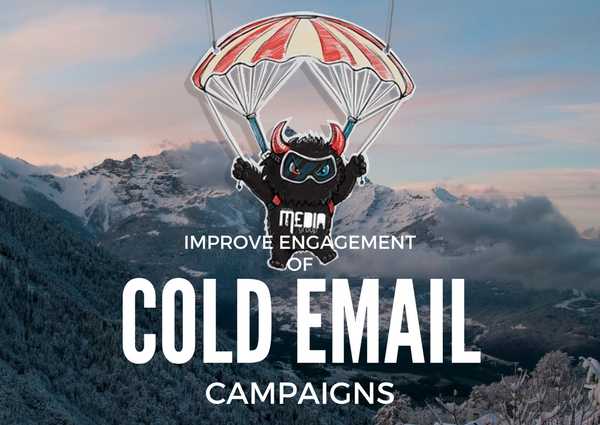Improve Engagement of Your Cold Email Campaigns with These 5 Tips
 https://www.omahamediagroup.com/images/uploads/monster_gallery/Omaha-Media-Group-Black.jpg
https://www.omahamediagroup.com/images/uploads/monster_gallery/Omaha-Media-Group-Black.jpg

Cold email campaigns are extremely important when dealing with important, top-of-the-line clients or when interacting with enterprises. But, it is a known fact that cold emails have lost much of the effectiveness they once had due to the emergence of modern digital media interaction tools. But, when done right, ‘cold-call’ emails can still help you to break the ice with a prospect and initiate a conversation which can ultimately lead to conversion.
One thing that you should understand before firing your cold email outreach campaigns is that the recipient of your email is probably a very busy person who works on a tight schedule. He or she also probably receives hundreds of cold emails everyday and they doesn’t care about most. To them, they are nothing other than spam.
How can you ensure that the fate of your first or follow-up cold email is different? How will you make them stand out? Here are some ideas that you should implement for improving the chances of email click-through and also the chances of getting a response.
Cold Email Campaign Tips That Work
1. Adequate research and personalization
Every email that you send to your important clients should be preceded by research on the client, their company and their specific needs. A cold email should not talk elaborately on your own brand, the salient features of your products or your social media profile. A client wants to know what you have to offer and how that might solve a specific problem that their company is facing so, tell them about their potential problem and the solution. But, to drive home your point, use stats, metrics, and social proofs that you have gathered from your research or even quotes and interviews of your prospect's competitors and industry peers. Tell them how their competitors have adopted your product/technology/solution and have been benefited.
2. A simple, to-the-point subject line
A subject line is an important component of an email. Even before a reader clicks an email to enter into the body, he will read the subject line. It has to be pithy but self-explaining and shouldn't contain more than 10 to 20 words. It is a good place to talk about the solution that you want to offer. A subject-line should explain how the email is relevant to the receiver and how it can help them. E.g, “Anita-Our new guidelines on usage of LED technology will help you to further improve energy savings.”
3. Keep the body short and simple
It is worth reiterating that no one has the patience to read through scrolls of pages of text and skim the vital information; you will have to be short and concise. 5 to 6 sentences in all should be sufficient and no more than 2 to 3 sentences should be used per paragraph. Explain, in short, how you came to know about this prospect, the problem their company is facing and how your idea can solve it. Use social proof and relevant statistics. But, don’t start talking about yourself. You will get a chance to introduce yourself and your company better in the subsequent emails if he responds to the initial cold email.
4. Use an easily recognizable email ID
Share contact information like phone number, office address, website URL, etc that you think is relevant and will make it easier to trace you. Your email ID should be such that it can be immediately linked to your company.
5. Keep following up
It is possible that your prospect may not notice your cold email or reply to it in your very first attempt. So, you will have to follow it up with a few more emails at strategic intervals without coming across as too desperate.
Cold emailing may be more difficult than you may have thought. It is a combination of precise science (use of various metrics and SEO) and understanding of human psychology. However, if you do it right, you will be rewarded in a big way!
Posted In: E-Mail Marketing


























